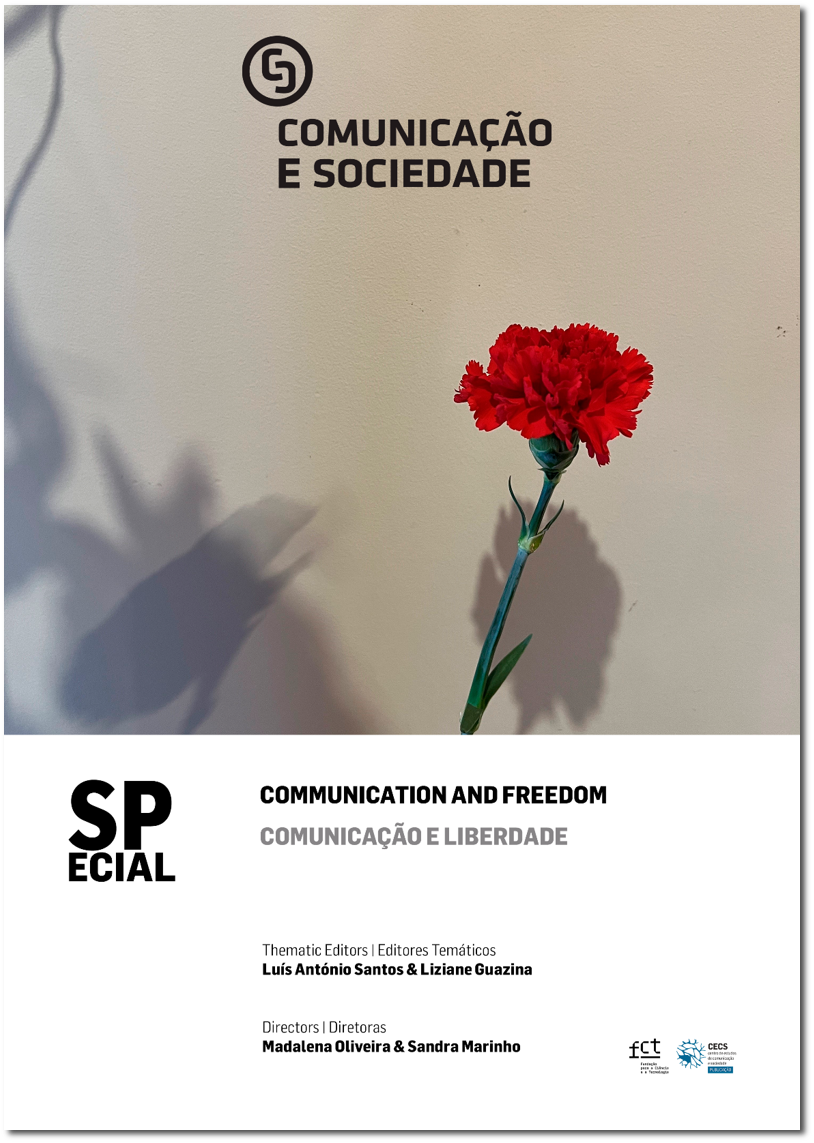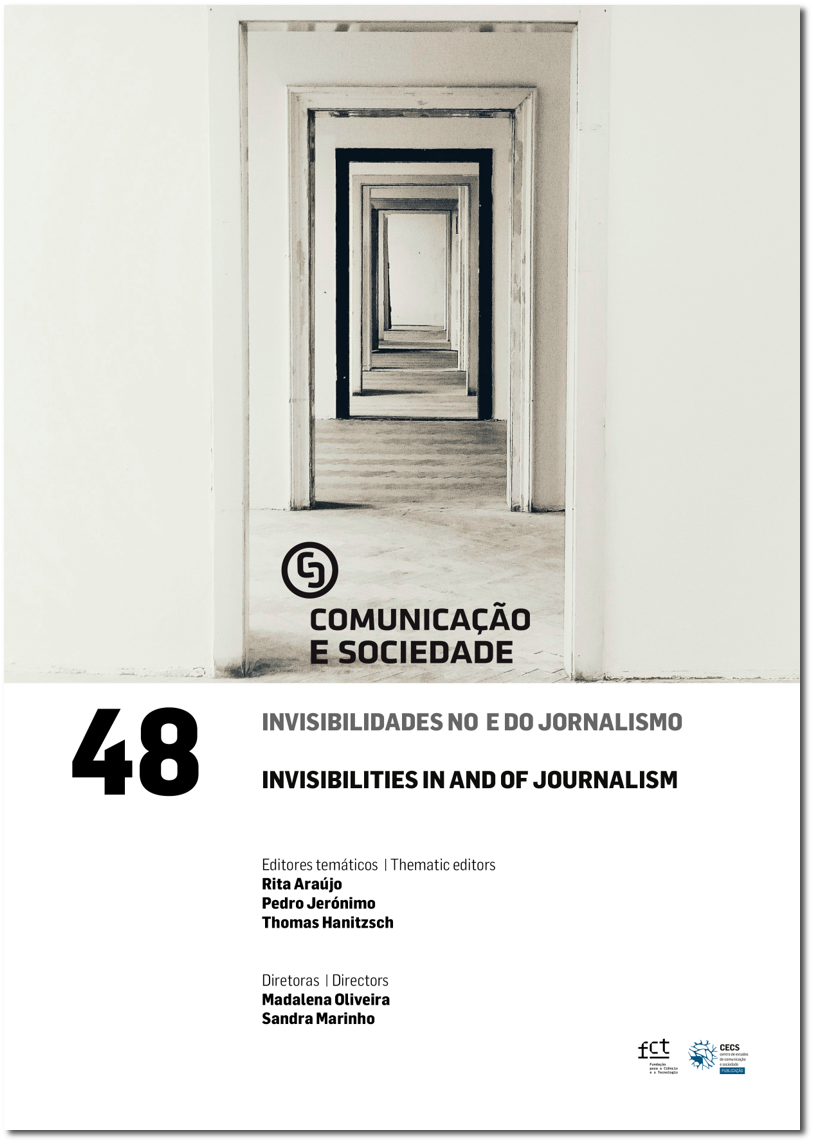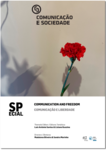“I Learn Here What I Don’t Learn Anywhere Else”: An Analysis of an Online Healthcare Community
DOI:
https://doi.org/10.17231/volesp(2025).5968Keywords:
online community, online participation, collective intelligence, digital inclusion, trust in social networksAbstract
This article aims to analyse the dynamics underlying communication within an online health community focused on carers, titled “Vencer Autismo” (Overcoming Autism). The community’s central platform was a Facebook page, supported by a weekly live programme moderated by moderators. A qualitative research approach was adopted, employing digital ethnography and interviews. The empirical study spanned over nine months, from September 2022 to May 2023, with the primary phase consisting of 10 weeks of digital ethnography, followed by 10 interviews. The analysis of the relationships between identified elements revealed that the knowledge shared within the community is viewed as rare by its members. This knowledge is based on lived experiences, with an emphasis on practical learning, testing, and irreverent discourse. Regular interactions were found to strengthen relationships, while the sense of inclusion served as a unifying force. Trust, another key theme, was found to be volatile — and in constant development — reliant on minimal factors such as moderators refraining from commenting on topics outside their expertise. Transparency emerged as a shared value within the community. The role of moderators was also recognised, with their participation justified in ensuring that interactions remain respectful.
Downloads
References
Amado, P. M. R. (2014). Participação ativa no desenvolvimento de comunidades online [Tese de doutoramento, Universidade Aveiro].
Bauman, Z. (2000). Liquid modernity. Polity Press.
Benkler, Y. (2006). The wealth of networks: How social production transforms markets and freedom. Yale University Press.
Braun, V., & Clarke, V. (2006). Using thematic analysis in psychology. Qualitative Research in Psychology, 3(2), 77–101.
Bruns, A. (2014). Beyond the producer/consumer divide: Key principles of produsage and opportunities for innovation. In M. A. Peters, T. Besley, & D. Araya (Eds.), The new development paradigm: Education, the knowledge economy and digital futures (pp. 51–65). Peter Lang.
Bruns, A, & Bahnisch, M. (2009). Social media: Tools for user-generated content: Social drivers behind growing consumer participation in user-led content generation. Volume 1 - State of the art. Smart Services CRC Pty.
Burrell, J. (2017). The fieldsite as a network: A strategy for locating ethnographic research. Routledge.
Cardoso, G., Paisana, M., & Pinto-Martinho, A. (2024). Digital news report Portugal 2024. Obercom.
Carpentier, N. (2020). Media and participation. In J. Servaes (Ed.), Handbook of communication for development and social change (pp. 195–216). Springer. https://doi.org/10.1007/978-981-15-2014-3_47
Castells, M. (2002). The internet galaxy: Reflections on the internet, business and society. Oxford University Press.
Couldry, N. (2004). The productive ‘consumer’ and the dispersed ‘citizen’. International Journal of Cultural Studies, 7(1), 21–32. https://doi.org/10.1177/1367877904040602
Ferreira, V. S. (2014). Artes e manhas da entrevista compreensiva. Saúde e Sociedade, 23(3), 979–992. https://doi.org/10.1590/S0104-12902014000300020
Gerashi, M. K., Bakhshnezhad, R., & Nosrati, S. (2023). The effect of information quality and source credibility on information adoption in online communities. New Marketing Research Journal, 12(4), 151–176. https://doi.org/10.22108/nmrj.2023.135304.2777
Gillespie, T. (2014). The relevance of algorithms. In T. Gillespie, P. J. Boczkowski, & K. A. Foot (Eds.), Media technologies: Essays on communication, materiality, and society (pp. 167–193). The MIT Press. https://doi.org/10.7551/mitpress/9042.003.0013
Goffman, E. (1974). Frame analysis. An essay on the organization of experience. Harvard University Press.
Gonçalves, A., Grupillo, A., & Victor Melo, P. (2024). Participação e confiança na comunicação comunitária: Os casos do Vela Notícias e do Jornal da Aldeia. Comunicação e Sociedade, 45, e024004. https://doi.org/10.17231/comsoc.45(2024).4813
Gorbis, M. (2013, 11 de novembro). Revitalizing communities through magic, awe, and inspiration. Stanford Social Innovation Review. https://ssir.org/articles/entry/revitalizing_communities_through_magic_awe_and_inspiration
Guilherme, I. T. (2013). Apoio a doentes e cuidadores em comunidades virtuais de saúde: O caso da comunidade online ELA Portugal [Dissertação de mestrado, Instituto Politécnico de Lisboa].
Hwang, S., & Foote, J. D. (2021). Why do people participate in small online communities? Proceedings of the ACM on Human-Computer Interaction, 5, 1–25. https://doi.org/10.1145/3479606
Kowalski, T., & Jung, B. (2021). Hybrid time as a critical new variable in media consumption – Context of the attention economy. Zeszyty Prasoznawcze, 64(2), 9–21. https://doi.org/10.4467/22996362PZ.21.008.13473
Kozinets, R. V. (2020). Netnography: The essential guide to qualitative social media research. SAGE.
Lévy, P. (2000). Collective intelligence: Man’s emerging world in cyberspace. Perseus.
Liu, X., Min, Q., Wu, D., & Liu, Z. (2020). How does social network diversity affect users’ lurking intention toward social network services? A role perspective. Information & Management, 57(7), 1–16. https://doi.org/10.1016/j.im.2019.103258
Lovatt, M., Bath, P. A., & Ellis, J. (2017). Development of trust in an online breast cancer forum: A qualitative study. Journal of Medical Internet Research, 19(5), e175. https://doi.org/10.2196/jmir.7471
Lupton, D. (2016). The use and value of digital media for information about pregnancy and early motherhood: A focus group study. BMC Pregnancy and Childbirth, 16, 1–10. https://doi.org/10.1186/s12884-016-0971-3
Malone, T. W., & Bernstein, M. (2022). Handbook of collective intelligence. Mitpress.
Mander, J., & Koch, J. (2020). The era of we. Globalwebindex; Reddit.
Matos-Silva, M. S., Abreu, R. A. S., & Nicolaci-da-Costa, A. M. (2012). Como satisfazer nossas necessidades de interagir online em diferentes níveis de intimidade? Um estudo sobre a comunicação nas comunidades virtuais. Interações em Psicologia, 16(2), 217–226. https://doi.org/10.5380/psi.v16i2.24662
Merleau-Ponty, M. (1976). Phénoménologie de la perception. Gallimard.
Myllylahti, M. (2019). Paying attention to attention: A conceptual framework for studying news reader revenue models related to platforms. Digital Journalism, 8(5), 567–575. https://doi.org/10.1080/21670811.2019.1691926
Pestana, S. (2010). Saúde web 2.0 – O papel das comunidades virtuais de doentes na área da saúde: Um estudo de caso para Portugal [Dissertação de mestrado, Universidade Nova de Lisboa].
Pink, S., Horst, H., Lewis, T., Hjorth, L., & Postill, J. (2015). Digital ethnography: Principles and practice. SAGE.
Preece, J. (2001). Online communities: Usability, sociability, theory and methods. In R. Earnshaw, R. Guedi, A. van Dam, & T. Vince (Eds.), Frontiers of human-centered computing, online communities and virtual environments (pp. 263–277). Springer.
Rheingold, H. (1993). The virtual community: Finding connection in a computerized world. Addison-Wesley Longman Publishing.
Ridings, C. M., & Gefen, D. (2004). Virtual community attraction: Why people hang out online. Journal of Computer-Mediated Communication, 10(1), Artigo JCMC10110. https://doi.org/10.1111/j.1083-6101.2004.tb00229.x
Ridings, C. M., Gefen, D., & Arinze, B. (2002). Some antecedents and effects of trust on virtual communities. The Journal of Strategic Information Systems, 11(3–4), 271–295. https://doi.org/10.1016/S0963-8687(02)00021-5
Rokka, J., & Moisander, J. (2009). Environmental dialogue in online communities: Negotiating ecological citizenship among global travellers. International Journal of Consumer Studies, 33(2), 199–205. https://doi.org/10.1111/j.1470-6431.2009.00759.x
Surowiecki, J. (2014, 18 de maio). The collective intelligence of the web. The New Yorker. https://www.newyorker.com/tech/annals-of-technology/the-collective-intelligence-of-the-web
Tapscott, D., & Williams, A. D. (2006). Wikinomics: How mass collaboration changes everything. Portfolio.
Toffler, A. (1980). The third wave. William Morrow.
Vilches, M., García, S., & Román, J. (2023). La producción de discursos sociales en entornos digitales: La comunidad digital como metodología de investigación social. Teknokultura, Revista de Cultura Digital y Movimientos Sociales, 20(2), 183–194. https://doi.org/10.5209/tekn.83473
Weld, G., Zhang, A. X., & Althoff, T. (2024). Making online communities ‘Better’: A taxonomy of community values on Reddit. Proceedings of the International AAAI Conference on Web and Social Media, 18(1), 1611–1633. https://doi.org/10.1609/icwsm.v18i1.31413
Wenger, E (1998). Communities of practice: Language, learning, and meaning. Cambridge University Press.
Xie, J., He, Z., Burnett, G., & Cheng, Y. (2021). How do mothers exchange parenting-related information in online communities? A meta-synthesis. Computers in Human Behavior, 115, 1–10. https://doi.org/10.1016/j.chb.2020.106631
Zaslow, E. (2012). Revalorizing feminine ways of knowing: The challenge to biomedical epistemology in an online mothers’ health communities. Information, Communication & Society, 15(9), 1352–1372. https://doi.org/10.1080/1369118X.2011.638653
Zhao, Y., Zhang, L., Zeng, C., Chen, Y., Lu, W., & Song, N. (2024). Factors influencing online health information credibility: A meta-analysis. Aslib Journal of Information Management. Publicação online antecipada. https://doi.org/10.1108/AJIM-05-2023-0155
Downloads
Published
How to Cite
Issue
Section
License
Copyright (c) 2025 Aldina Margato, Jorge Vieira

This work is licensed under a Creative Commons Attribution 4.0 International License.
Authors own the copyright, providing the journal with the right of first publication. The work is licensed under a Creative Commons Attribution 4.0 International License.











